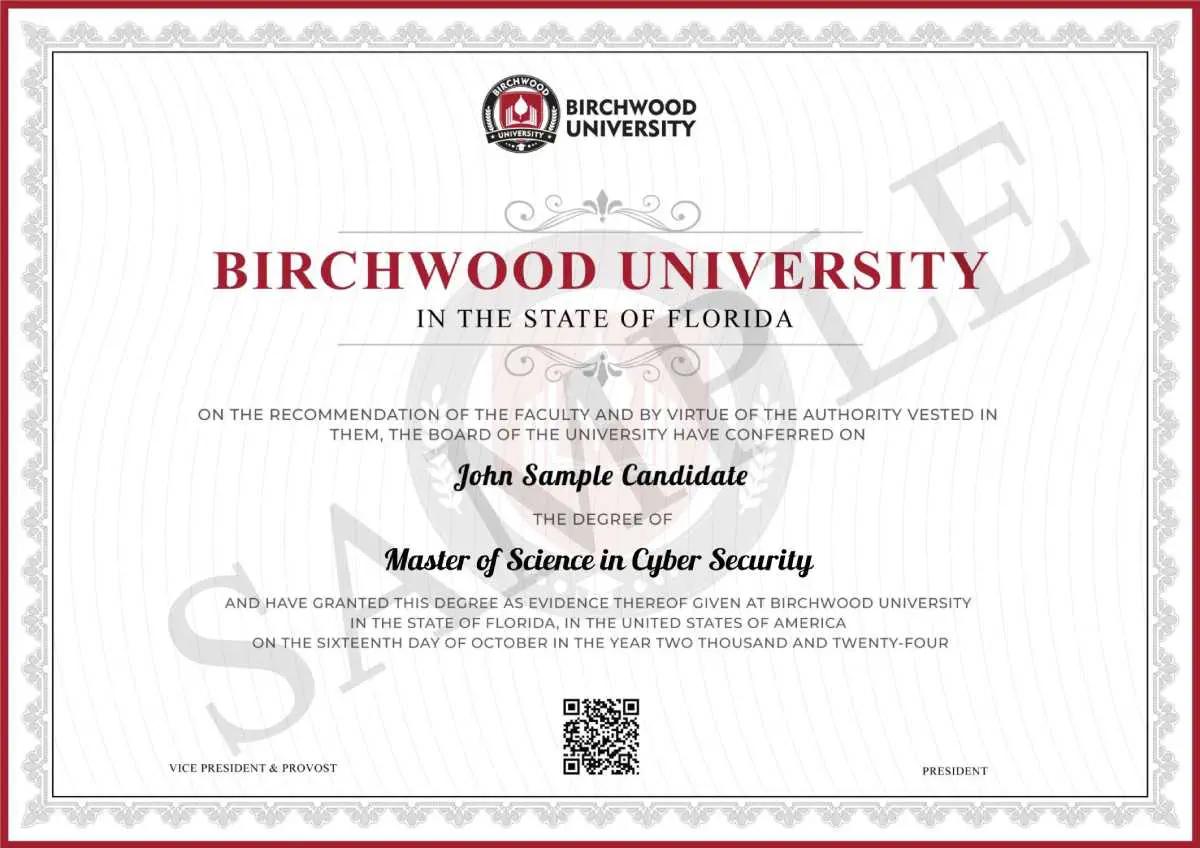Master of Science in Cyber Security
Master of Science in Cyber Security
The Master of Science in Cybersecurity is an 18-month high intensity degree is designed to include basics of Kali Linux, networking concepts, introduction to hacking, its types and tools and techniques used for hacking. It also includes system hacking, mobile hacking, wireless hacking, and the countermeasures of hacking. This course mostly relies on the practical aspects where students would be taught how to perform hacking on different devices and protect themselves from getting hacked. Students will be trained to manage and protect an organization's data systems and environment.
For help, give us a call:+1 (407) 815-7366

The Cyber Security Landscape
Why choose a Master of Science in Cyber Security?
Master of Science in Cyber Security is a professional degree program designed to prepare students for careers in the field of cyber security. It typically combines technical skills from the field of computer science with policy, law, ethics, and business to provide students with the knowledge and skills necessary to protect organizations from cyber threats. Courses cover topics such as network security, digital forensics, information security management, cyber law, cryptography, and secure software engineering. With the increasing demand for cyber security professionals, a Master of Science in Cyber Security can open doors to a wide variety of exciting job opportunities in the rapidly evolving field.
Admission Requirements
General Admission Requirements
- A copy of a valid government-issued photo identity card.
- A copy of an updated resume.
- Any document if not in English must be accompanied by a certified translated copy.
Additional Admission Requirements For Master of Science in Cyber Security
- Submit a 500-word essay (minimum) summarizing the applicant’s interest in the Master of Science in Cyber Security program outlining your professional aspirations.
- Provide an official undergraduate degree transcript verifying the completion of a bachelor’s degree in computer science, engineering, information technology, or a related field with a cumulative GPA of 2.5 or higher.
- Provide two (2) professional recommendation letters attesting to your academic abilities and professional potential.
- Personal Interviews will be conducted with the Director of Education for applicants with a GPA below 2.5.
Your Path to Admission
We evaluate candidates based on their educational background, professional performance, consideration, and openness to applications. Our goal is to identify motivated individuals with strong leadership potential and a passion for advancing in the field of cyber security.
Step 1
Online Application
Step 2
Online Assessment
Step 3
Personal Interview
Step 4
Documents Verification
Step 5
Final Committee Decision


Admission Application and Graduation Requirements
Application For Admission
All individuals interested in applying for admission to the university must complete an application and submit a non-refundable registration fee of $150.00 (payable by check, money order, or credit card). Checks and money orders should be made payable to Birchwood University.
Applicants must also provide all required application documents to be considered for admission. Once an admissions decision has been made, the candidate will receive an email with further instructions. Admissions agents will maintain regular contact with applicants to ensure all necessary documents are received by the admissions office.
Post Graduation Requirements
To graduate from Birchwood University and to receive a degree, the students must:
- Complete all credits as stated in the catalog.
- Need to earn a minimum cumulative grade point average of 3.0.
- Meet satisfactory academic progress.
- Fulfill all financial obligations.
Master of Science in Cyber Security Course - Key Highlights
Earn a globally recognized online master's degree equally credible as offline.

Program Objectives
Upon completion of the program, students will
- Apply the necessary skills to protect a network or system from hacking.
- Apply theoretical knowledge in real life scenarios and perform hacking on different devices.
- Effectively use the skills to perform ethical hacking.
- Be proficient in different techniques used by the attackers to gain access to any device.
- Be proficient in the countermeasures for different techniques of hacking.
- Be proficient in analyzing and detecting security threats to an organization's computing systems.
- Be proficient in applying security principles and practices to maintain operations of computing systems in the presence of risks and threats.
- Effectively communicate across all levels of the organization to convey complex technical matters.
- Recognize professional responsibility to make informed decisions on computing practices based on legal and ethical principles.
Program Curriculum
A summary of the courses you will learn during the program.
MCS500 | Networking and Kali Linux | 3 Credit Hours
MCS505 | Networking Concept and Kali Linux | 3 Credit Hours
MCS510 | Kali Linux for Hacking | 3 Credit Hours
MCS515 | Concepts of Hacking | 3 Credit Hours
MCS520 | Engineering of Hacking | 3 Credit Hours
MCS525 | Internet of Things and Cryptography | 3 Credit Hours
MCS530 | Forensic Computing | 3 Credit Hours
MCS535 | Application And Device Control | 3 Credit Hours
MCS540 | Administration and Audits | 6 Credit Hours
MCS545 | Capstone Project | 6 Credit Hours
Earn an Eminent Master of Science in Cyber Security Degree from
Birchwood University
Same Master as On campus
Receive the same world-class education and global recognition as on- campus masters without the need to relocate.
Globally recognized US Degree
Birchwood University is licensed by the Florida Commission for Independent Education, Florida Department of Education.
Lifetime Alumni Status
Join an alumni network of professionals with as many in key leadership roles spread all over the globe.

Additional Information for Master of Science in Cyber Security
Frequently Asked Questions
For quick answers, browse our Frequently Asked Questions on the website



